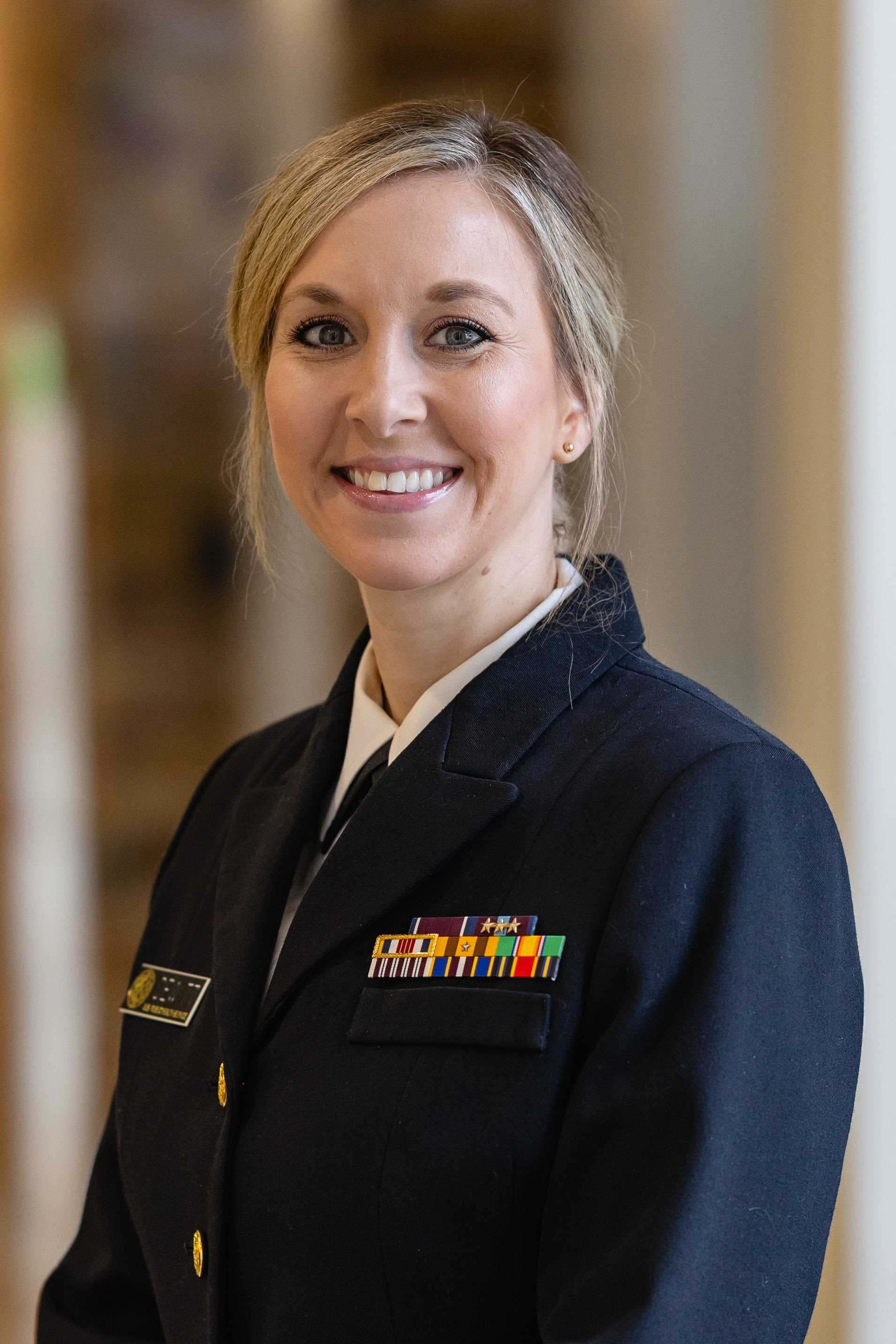
- Details
- By Chickasaw Nation Media
Cmdr. Kayla Dewitt has made it her mission to bring culturally competent health and wellness care to First American communities, ensuring unique health needs are addressed with respect, understanding and cutting-edge therapeutic techniques.
“As Native people, we understand our bodies, our traditions and our ways of healing in a way that no outside system ever fully will,” Dewitt, a Chickasaw citizen, said. “That’s why it’s so important that we take the lead in our own health care.”
Dewitt kicked off the first of many Chikasha Ihoo (Chickasaw Women) Empowerment Series for the year March 25 at the Chickasaw Cultural Center, Sulphur, Oklahoma. Her topic, “Empowering Health and Community: A Chickasaw Journey in Service and Leadership,” focused on the importance of Indigenous-led health care for First American communities and her journey advocating for tribal citizens’ health and wellness.
Dewitt is continuing a proud family legacy of service to First Americans. As manager and lead physical therapist at the Chickasaw Nation Empowered Living Clinic, Dewitt is on the front lines of transforming health care for First American youth.
She earned her Bachelor of Science in health studies from the University of Oklahoma Health Sciences Center in 2010 and Doctor of Physical Therapy degree in 2012. After graduation, she became the first physical therapist at the Oklahoma City Indian Clinic, where she developed its inaugural physical therapy department from the ground up.
In 2021, she joined Empowered Living as lead physical therapist, contributing to the Chickasaw Nation’s first and only tribal pediatric obesity clinic.
Dewitt’s journey into physical therapy and wellness is deeply rooted in her passion for helping others. She has not only excelled academically but also dedicated her career to reshaping how physical therapy is viewed and accessed within Indian Country.
“Too often, our communities face unnecessary obstacles to good health,” Dewitt said. “I want to break down those barriers and make sure every Native person gets the care they deserve.”
Recognizing the disparities in health care that First Americans often face, she has worked tirelessly to provide holistic, individualized care that aligns with traditional values and contemporary medical advancements.
Throughout her career, Dewitt has been a strong advocate for incorporating Indigenous knowledge into modern health care practices. She said she understands healing is not just physical but also emotional, mental and spiritual.
“Healing isn’t just about treating an injury,” Dewitt said. “It’s about restoring balance. Our ancestors knew this, and I carry that knowledge into my work every day.”
Her approach to therapy integrates movement, strength-building and rehabilitation with a deep respect for traditional healing methods.
“Science and tradition don’t have to compete,” Dewitt said. “They work together.”
Her understanding of the gentle balance between cultural traditions and modern medicine makes her a trailblazer in the field of First American health care.
Beyond her professional contributions, Dewitt serves as a mentor and role model for young Indigenous individuals aspiring to enter health care professions.
“If I can help just one young Native person believe they belong in this field, then I’ve done my job,” Dewitt said. “But I want to help many.”
By sharing her experiences and knowledge, she said she hopes to inspire the next generation of First American students to pursue careers in health and wellness, ultimately strengthening the foundation of Indigenous-led health care while also increasing First American representation in the American health system.
“Remember that those who came before you paved the way for the opportunities you now have,” Dewitt said. “Whether through family, community leaders or role models, their sacrifices have given you the chance to make a difference. By giving back, you’re honoring their legacy and continuing their work to make the world a better place for future generations.”
More Stories Like This
Arizona MMIP Task Force Holds Listening Session for Survivors and Families‘A good stew is a story’ Blackfeet buffalo rancher shares Three Sisters Buffalo Stew recipe
National Indian Health Board Urges Congress to Extend Enhanced Premium Tax Credits
$1.25 Million Grant Gives Hope to Tolowa Dee-ni' Nation Amid Housing Crisis
HHS Repeals Nursing Home Staffing Requirements, Citing Relief for Tribal Facilities

